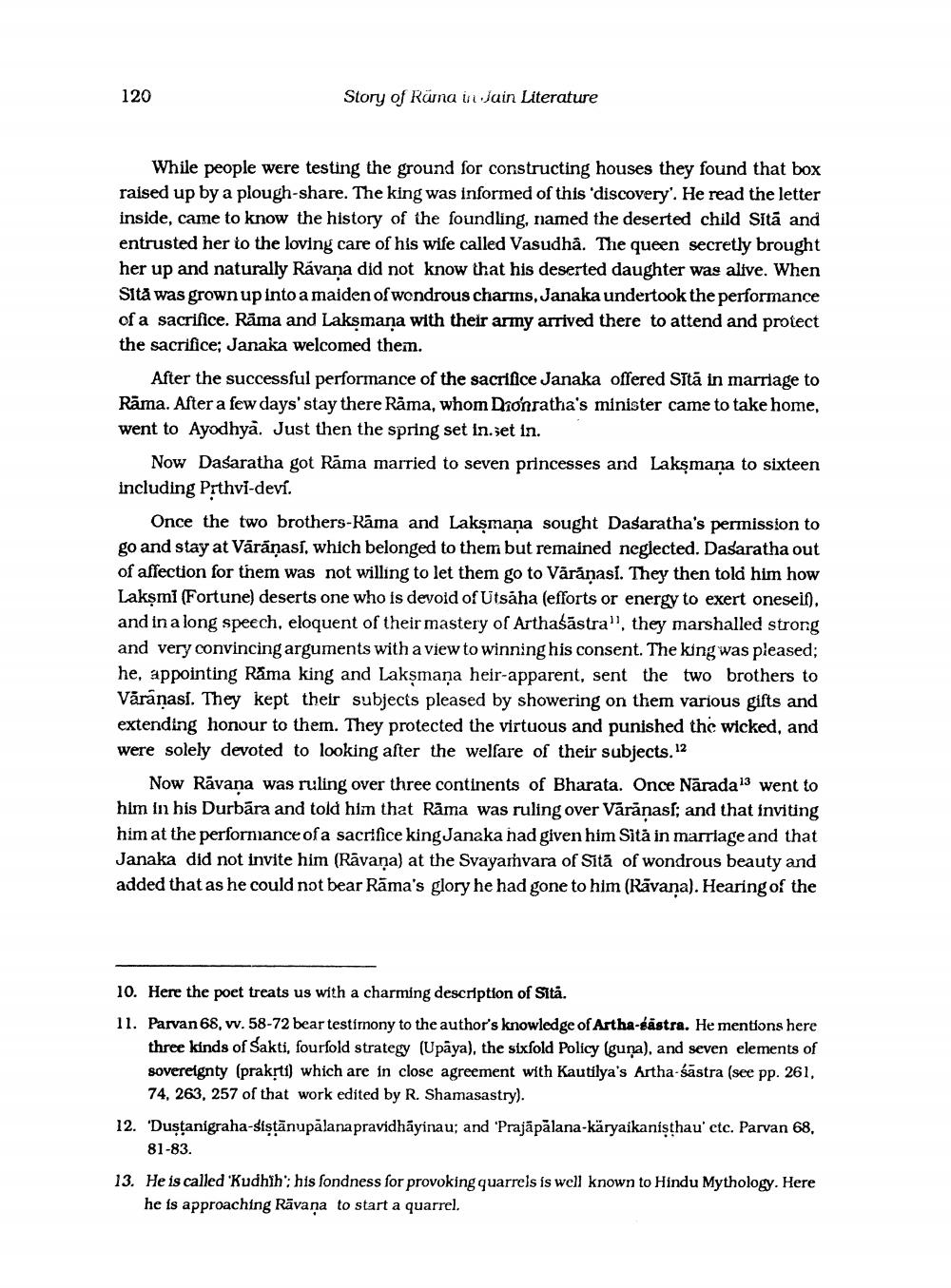________________
120
Story of Rama
Jain Literature
While people were testing the ground for constructing houses they found that box raised up by a plough-share. The king was informed of this discovery'. He read the letter inside, came to know the history of the foundling, named the deserted child Sita and entrusted her to the loving care of his wife called Vasudha. The queen secretly brought her up and naturally Ravana did not know that his deserted daughter was alive. When Sità was grown up into a maiden of wondrous charms, Janaka undertook the performance of a sacrifice. Rama and Laksmana with their army arrived there to attend and protect the sacrifice; Janaka welcomed them.
After the successful performance of the sacrifice Janaka Offered Sita in marriage to Rama. After a few days' stay there Rama, whom Dronratha's minister came to take home, went to Ayodhyā. Just then the spring set in. set in.
Now Dasaratha got Rāma married to seven princesses and Lakşmaņa to sixteen including Prthvi-deví.
Once the two brothers-Rama and Laksmana sought Dasaratha's permission to go and stay at Vārāṇass, which belonged to them but remained neglected. Dasaratha out of affection for them was not willing to let them go to Váránasi. They then told him how Lakşmi (Fortune) deserts one who is devoid of Utsaha (efforts or energy to exert oneself), and in a long speech, eloquent of their mastery of Arthaśāstra', they marshalled strong and very convincing arguments with a view to winning his consent. The king was pleased; he, appointing Rama king and Laksmana heir-apparent, sent the two brothers to Varanasi. They kept their subjects pleased by showering on them various gifts and extending honour to them. They protected the virtuous and punished the wicked, and were solely devoted to looking after the welfare of their subjects. 12
Now Ravana was ruling over three continents of Bharata. Once Nārada 13 went to him in his Durbāra and told him that Räma was ruling over Vārānass; and that inviting him at the performance of a sacrifice king Janaka had given him Sità in marriage and that Janaka did not invite him (Ravaņa) at the Svayamvara of Sită of wondrous beauty and added that as he could not bear Rāma's glory he had gone to him (Rāvana). Hearing of the
10. Here the poet treats us with a charming description of Sita. 11. Parvan 68, w. 58-72 bear testimony to the author's knowledge of Artha-sästra. He mentions here
three kinds of Sakti, fourfold strategy (Upāya), the sixfold Policy (guma), and seven elements of sovereignty (prakrti) which are in close agreement with Kautilya's Artha-śāstra (see pp. 261,
74, 263, 257 of that work edited by R. Shamasastry). 12. "Dustanigraha-sistānupalanapravidhāyinau; and 'Prajāpālana-käryaikanisthau' ctc. Parvan 68.
81-83 13. He is called 'Kudhih: his fondness for provoking quarrels is well known to Hindu Mythology. Here
he is approaching Rāvana to start a quarrel.




